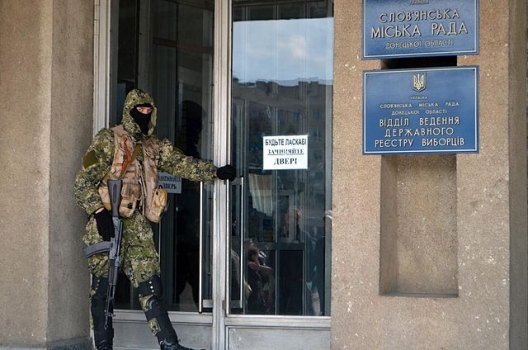 At the heart of this commitment is Article 5 of the North Atlantic Treaty, which states that “an armed attack against one or more [members] in Europe or North America shall be considered an attack against them all.” Questions, however, have been raised as to what constitutes an “armed attack.” How grave—or perhaps how militarily conventional—must a threat be to trigger the clause of collective self-defense?…
At the heart of this commitment is Article 5 of the North Atlantic Treaty, which states that “an armed attack against one or more [members] in Europe or North America shall be considered an attack against them all.” Questions, however, have been raised as to what constitutes an “armed attack.” How grave—or perhaps how militarily conventional—must a threat be to trigger the clause of collective self-defense?…
Mr. Putin has lately been engaging in a hybrid type of warfare that exploits the thinking that a war is not a war until it involves heavy fighting between conventional units. By undershooting the traditional threshold of Article 5, Mr. Putin seems to believe that he can stymie the countermeasures of a target’s friends and allies….
NATO, instead, should state clearly that any and every attack on a member’s stability, integrity and security—be it by conventional or hybrid means—would be considered an attack on the common interest, and result in an appropriate common reaction.
Equally important, it should maintain an allied presence on the ground—meaning actual troops and a depot of necessary materiel—as well as the current air operations in the Baltic states.
The bottom line: Article 5 must stand….
It is, in my view, crucial that NATO remains open for enlargement and equally important that some partner countries—such as my home country of Sweden—apply for membership in the organization. Russia’s push to divide the transatlantic community should have the opposite result: a more-united stand.
Mr. Tolgfors was Sweden’s minister of defense from 2007 to 2012.
Image: Armed separatist in Sloviansk, April 14, 2014 (photo: Yevgen Nasadyuk)
